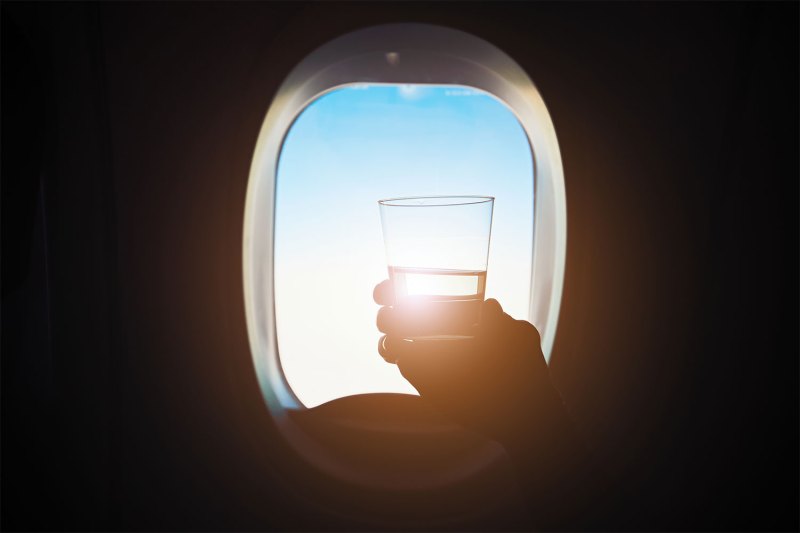Over the last three months, COVID-19 forced many of us to abandon our hobbies and the pastimes we love. Bars are closed, and many of those that reopened have already closed again. The beaches aren’t safe, even if some are open. Even Disney World — the happiest place on earth — has been dark since March. All of which is why alcohol sales have skyrocketed since the pandemic began. But, while booze might be a haven for those of us stuck at home, it’s no longer an option for many air travelers.

Around the world, major air carriers are choosing to limit or halt their in-flight food and drink services. In the United States, Delta Air Lines has ceased serving alcohol on domestic flights and those that fly within the Americas. Beer, wine, and spirits will still be available on all other international flights. American Airlines has restricted alcohol service only to long-haul international flights and First Class passengers.
In Europe, major airlines are taking a more nuanced approach. Virgin Atlantic is removing all onboard alcohol while providing “Health Packs” to passengers, complete with face masks, hand sanitizer, and surface wet wipes. British Airways is no longer serving booze to short-haul economy class passengers. Dutch carrier KLM will no longer offer hot or alcoholic drinks. Passengers will instead be provided with a pre-packed refreshment kit when they board and can request additional soft drinks and water during the flight.
Almost every major airline has taken extraordinary steps to slow the spread of coronavirus. Most mandate the wearing of face masks by passengers and crew. Others are limiting things like carry-on baggage and access to overhead compartments. Some are going a step further by instituting pre-flight COVID-19 blood tests. The decision to remove in-flight drink service is intended to minimize interactions between passengers and crew. It will also dramatically reduce the number of alcohol-related incidents, which often involve close contact between flight attendants and passengers.
This is, of course, bad news for many of us. There is a silver lining, though. Dehydration is a significant contributor to jet lag, and alcohol is a major contributor to dehydration. So, while future flights may not be as fun, they will at least be a bit healthier.
Still, if you just can’t bear to fly without that high-altitude Old Fashioned, you can bring your own booze aboard — sort of.



